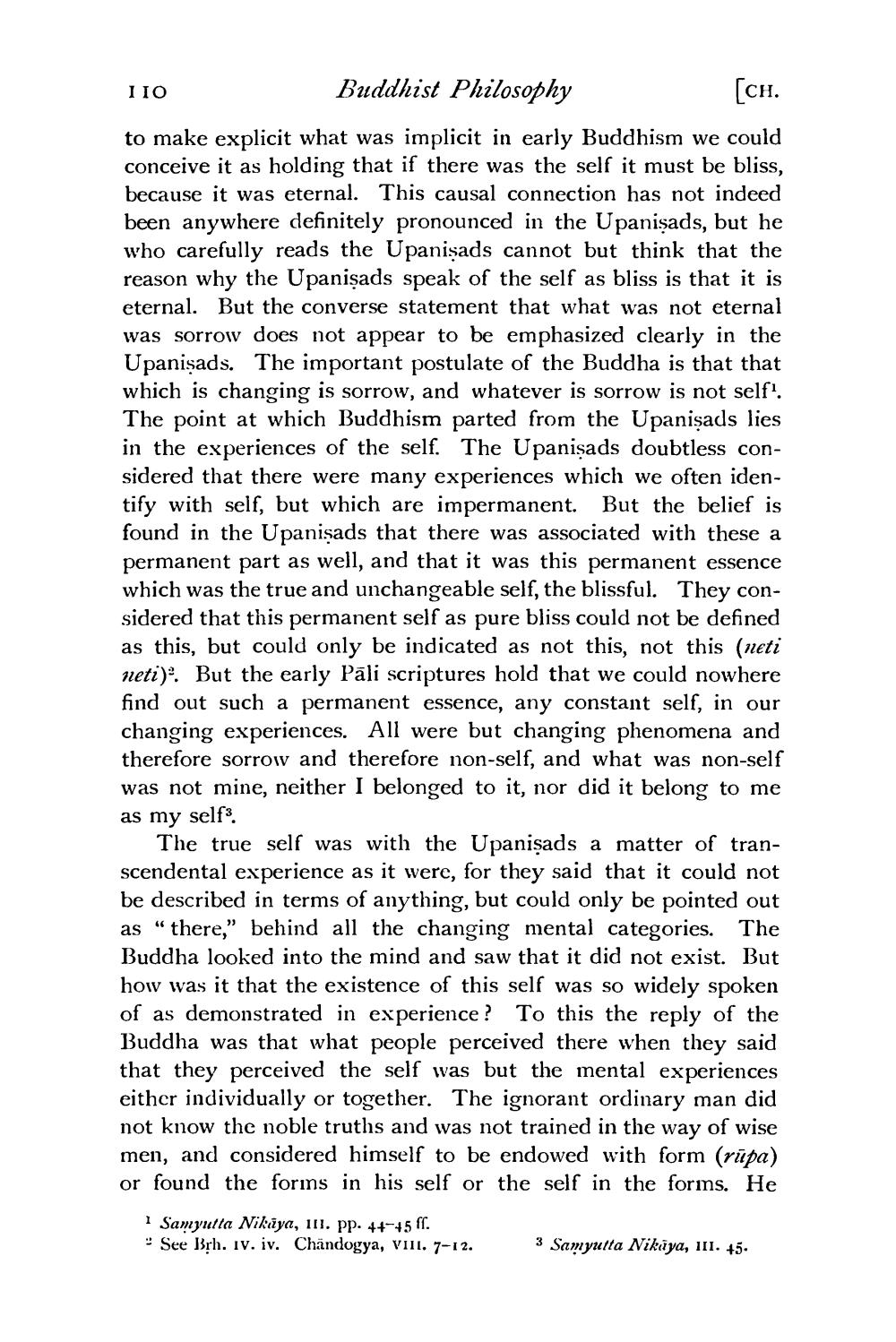________________
Buddhist Philosophy
[CH.
to make explicit what was implicit in early Buddhism we could conceive it as holding that if there was the self it must be bliss, because it was eternal. This causal connection has not indeed been anywhere definitely pronounced in the Upanisads, but he who carefully reads the Upaniṣads cannot but think that the reason why the Upanisads speak of the self as bliss is that it is eternal. But the converse statement that what was not eternal was sorrow does not appear to be emphasized clearly in the Upanisads. The important postulate of the Buddha is that that which is changing is sorrow, and whatever is sorrow is not self1. The point at which Buddhism parted from the Upanisads lies in the experiences of the self. The Upanisads doubtless considered that there were many experiences which we often identify with self, but which are impermanent. But the belief is found in the Upanisads that there was associated with these a permanent part as well, and that it was this permanent essence which was the true and unchangeable self, the blissful. They considered that this permanent self as pure bliss could not be defined as this, but could only be indicated as not this, not this (neti neti). But the early Pāli scriptures hold that we could nowhere find out such a permanent essence, any constant self, in our changing experiences. All were but changing phenomena and therefore sorrow and therefore non-self, and what was non-self was not mine, neither I belonged to it, nor did it belong to me as my self3.
IIO
as
The true self was with the Upanisads a matter of transcendental experience as it were, for they said that it could not be described in terms of anything, but could only be pointed out "there," behind all the changing mental categories. The Buddha looked into the mind and saw that it did not exist. But how was it that the existence of this self was so widely spoken of as demonstrated in experience? To this the reply of the Buddha was that what people perceived there when they said that they perceived the self was but the mental experiences either individually or together. The ignorant ordinary man did not know the noble truths and was not trained in the way of wise men, and considered himself to be endowed with form (rūpa) or found the forms in his self or the self in the forms. He
1 Samyutta Nikaya, 111. pp. 44-45 ff.
See Brh. IV. iv. Chandogya, VIII. 7-12.
3 Samyutta Nikaya, III. 45.




